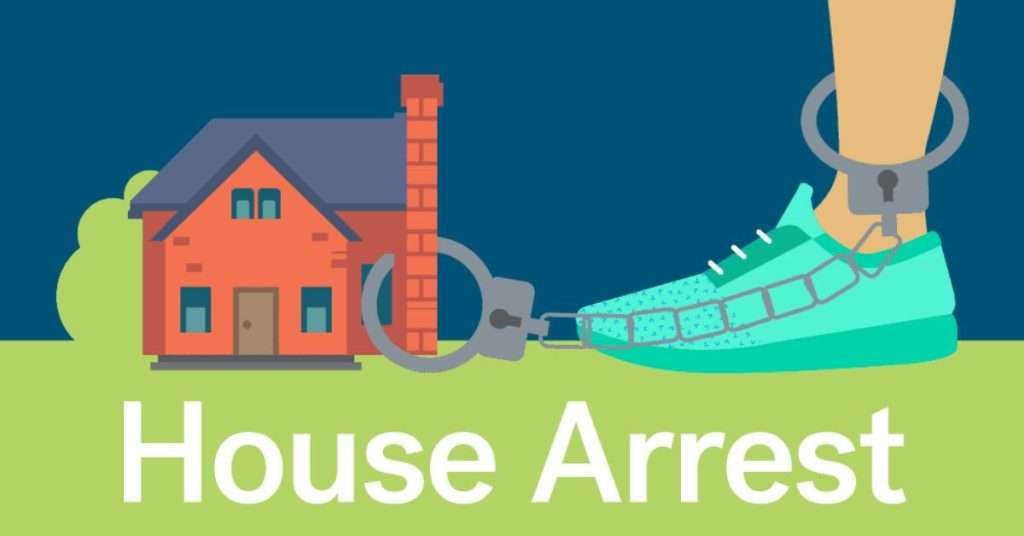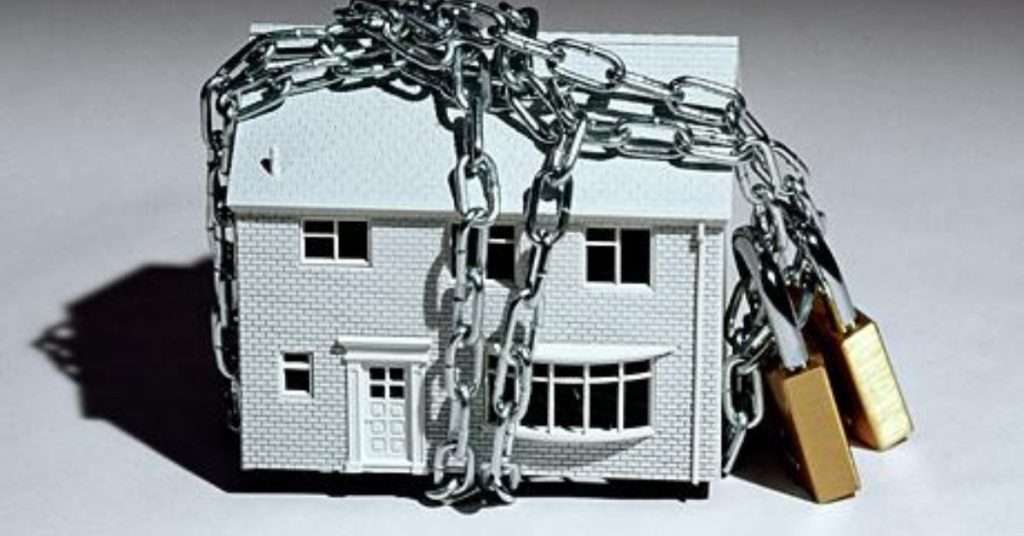House arrest lets offenders serve their sentences at home instead of in jail. This alternative form of punishment involves wearing an ankle monitor that tracks their location. It aims to allow individuals to maintain some normalcy while still being closely monitored.
Contents
ToggleUnder house arrest, offenders can leave home for approved activities like work, school, or medical appointments. They must adhere to strict rules and a set curfew. A probation officer oversees their compliance, and any violations can result in harsher penalties, including jail time.
What is House Arrest?
House arrest is a form of punishment where individuals serve their sentences at home instead of in jail. Offenders wear an ankle monitor that tracks their movements. They must follow strict rules and curfews set by the court.
How Does House Arrest Work?
Court Order and Eligibility
House arrest begins with a court order, typically for first-time, nonviolent offenders. The judge assesses the risk and suitability before issuing this sentence.
Electronic Monitoring
Offenders wear a GPS ankle bracelet that tracks their location at all times. This ensures they stay within approved areas and comply with their curfew.
Supervision and Compliance
A probation officer monitors the offender through regular and surprise visits. Offenders must attend scheduled meetings and comply with random drug and alcohol tests.
Curfew and Restrictions
House arrest includes a strict evening curfew tailored to the offender’s schedule. Offenders may leave home only for pre-approved activities like work or medical appointments.
Standard House Arrest Rules

Probation Officer: Offenders are assigned a probation officer who monitors compliance through regular and surprise visits.
Drugs & Alcohol: Offenders must abstain from alcohol and nonprescription drugs, with random checks and tests conducted by the probation officer.
GPS Ankle Bracelet: Offenders wear an ankle bracelet that tracks their location 24/7, ensuring they stay within permitted areas.
Evening Curfew: Offenders must adhere to an evening curfew, tailored to their work schedule and responsibilities.
Additional Requirements
Offenders may be required to complete community service hours. Any violation of house arrest terms can result in immediate jail time, reinforcing the need for strict compliance.
Also Read This Blog: 10 FARMHOUSE BARNDOMINIUM INTERIOR DESIGN IDEAS
What Are the Advantages of House Arrest?
House arrest allows offenders to serve their sentences at home, offering several benefits. It reduces prison overcrowding, saves costs, and keeps families together.
Offenders can continue working or studying, promoting rehabilitation. This alternative sentence can also reduce the risk of re offending by maintaining community ties.
- Advantages of House Arrest:
- Reduces prison overcrowding
- Saves incarceration costs
- Keeps families together
- Allows continued employment or education
- Promotes rehabilitation and reduces re-offending
Who Qualifies for House Arrest?
- Non-violent offenders: Those who haven’t committed violent crimes are more likely to be considered for house arrest.
- First time offenders: Individuals with no prior criminal record have a better chance of qualifying.
- Stable home environment: A consistent, safe living situation is essential for eligibility.
- Strong community support: Having family or community members who can provide support helps in qualifying.
- Steady employment: Offenders with a reliable job are often seen as good candidates for house arrest.
- Positive compliance history: Past adherence to legal requirements can influence the court’s decision.
- Non severe crime nature: Less severe offenses are more likely to result in house arrest instead of incarceration.
What Are the Conditions of House Arrest?

House arrest involves several conditions to ensure compliance and rehabilitation. Offenders must follow these rules to avoid further penalties or imprisonment.
- Electronic monitoring: Offenders must wear a device to track their location at all times.
- Curfew adherence: They must stay at home during specified hours, usually at night.
- Pre-approved outings: Leaving home is only allowed for work, school, or medical appointments.
- No alcohol or drugs: Offenders are prohibited from consuming or possessing these substances.
- Regular check-ins: They must meet with a probation officer periodically to ensure compliance.
- Drug testing: Random tests are conducted to ensure they are not using illegal substances.
- No firearms: Possessing weapons is strictly forbidden while under house arrest.
These conditions help maintain order and support the offender’s rehabilitation. Adhering to these rules is crucial for successfully completing house arrest.
What Happens If You Violate the Terms of House Arrest?
Violating the terms of house arrest can lead to serious consequences. Probation officers will review the violation and determine the appropriate action.
For minor infractions, you might receive a warning or an adjusted curfew. However, severe or repeated violations can result in harsher penalties.
The court may extend your house arrest period or revoke it entirely, sending you to jail. Compliance is crucial to avoid these penalties and complete your sentence successfully.
How Do I Apply for House Arrest?
To apply for house arrest, your attorney can present your case during sentencing, emphasizing your eligibility and suitability for the program. Providing evidence of your stable employment, community ties, and first-time offense can strengthen your application.
During the sentencing phase, your attorney can advocate for your eligibility by highlighting your non-violent history and strong community support. Demonstrating your commitment to rehabilitation and compliance can increase your chances of being approved for house arrest.
- Your attorney can emphasize your eligibility and suitability for the program.
- Providing evidence of your stable employment and community ties strengthens your application.
- Highlighting your non-violent history and first time offense can bolster your case.
- Demonstrating your commitment to rehabilitation and compliance is essential.
Can I Leave My Home At All While Under House Arrest?

While under house arrest, individuals can leave their home for specific pre-approved reasons, such as work, school, medical appointments, counseling, or community service. Any other outings require prior permission, and leaving the permitted zone or breaking curfew can result in penalties. The probation officer decides on additional freedoms on a case-by-case basis.
How Long Can House Arrest Last?
House arrest duration varies based on the offense, typically ranging from a few months to over a year. Pretrial house arrest ends at trial’s conclusion, while post sentencing periods can extend up to twelve months. Early release may occur for good behavior, while violations can prolong the sentence.
When Are You Eligible for House Arrest?
Eligibility for house arrest hinges on several factors, such as the nature of the offense and the individual’s prior criminal record. Typically, non violent first time offenders with stable living arrangements are prime candidates for house arrest.
However, eligibility criteria may vary depending on jurisdictional laws and the presiding judge’s discretion. Factors like community ties, employment status, and compliance history also influence eligibility considerations.
Ultimately, the court assesses each case individually to determine if house arrest is a suitable alternative to traditional incarceration based on the offender’s circumstances and the severity of the offense.
What Are the Costs of House Arrest?
The costs of house arrest can vary but may include fees for electronic monitoring equipment and supervision. These costs are typically the responsibility of the individual on house arrest.
Financial aid or payment plans may be available for those who cannot afford the fees. It is important to adhere to payment guidelines to avoid further legal issues.
Can I Leave My Home At All While Under House Arrest?
While under house arrest, individuals are typically allowed to leave their homes for specific reasons, such as work, medical appointments, or court approved activities.
However, any departure from home must be pre-approved, and individuals must wear their monitoring devices and adhere to curfew restrictions.
Failure to comply with these rules may result in penalties, including extensions of house arrest or even imprisonment.
How Do Authorities Know That I Am at Home?
Authorities track individuals on house arrest using electronic monitoring devices, usually ankle bracelets equipped with GPS technology.
These devices monitor the wearer’s location and movements, alerting authorities if they leave approved areas or violate curfew restrictions.
The monitoring system helps ensure compliance with house arrest terms and detect any attempts to tamper with or remove the device.
Do I Need to Hire an Attorney if I Violated House Arrest?

If you violate house arrest, it’s advisable to seek legal counsel to navigate the potential consequences and defense strategies.
An experienced attorney can represent you in court, argue for leniency, or negotiate alternative penalties to minimize repercussions.
Legal representation can help protect your rights and ensure fair treatment throughout the legal process.
Also Read This Blog: Joel Osteens House in Houston
How Are You Monitored While on House Arrest?
While on house arrest, you are monitored through electronic tracking devices, typically ankle bracelets. These devices use GPS technology to track your movements and ensure compliance with the terms of your confinement.
Any attempt to tamper with or remove the monitoring device is detected, and authorities are alerted. This monitoring system helps ensure adherence to the rules of house arrest.
Frequently asked question:
Does house arrest count as time served in Virginia?
In Virginia, house arrest may count as time served depending on the discretion of the court and the specifics of the case.
When does house arrest start after sentencing
House arrest typically begins immediately after sentencing, once the terms and conditions are established by the court.
What crimes get you house arrest
House arrest is often given for non-violent offenses such as fraud or embezzlement, especially for first-time offenders.
How long is house arrest for assault
The duration of house arrest for assault in Virginia varies depending on factors such as the severity of the offense and the decision of the court.
How long will NBA be on house arrest
The duration of house arrest for an NBA player, or anyone else, depends on the terms set by the court and the specifics of their case.
Does house arrest count as time served
In some cases, house arrest may count as time served, but it ultimately depends on the jurisdiction and the decision of the court.
Summary
House arrest, also known as electronic monitoring, is an alternative to jail time where offenders serve their sentence at home. They wear an ankle bracelet that tracks their movements using GPS. This allows them to maintain family ties and continue working or attending school.
Under house arrest, individuals must follow strict rules like adhering to curfews and only leaving home for approved activities such as work, school, or medical appointments. A probation officer monitors compliance through regular check-ins and random visits. Violating these terms can result in stricter penalties or imprisonment.